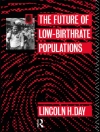This new edition of The Sage Handbook of Social Network Analysis builds on the success of its predecessor, offering a comprehensive overview of social network analysis produced by leading international scholars in the field.
Brand new chapters provide both significant updates to topics covered in the first edition, as well as discussing cutting edge topics that have developed since, including new chapters on:
· General issues such as social categories and computational social science;
· Applications in contexts such as environmental policy, gender, ethnicity, cognition and social media and digital networks;
· Concepts and methods such as centrality, blockmodeling, multilevel network analysis, spatial analysis, data collection, and beyond.
By providing authoritative accounts of the history, theories and methodology of various disciplines and topics, the second edition of The SAGE Handbook of Social Network Analysis is designed to provide a state-of-the-art presentation of classic and contemporary views, and to lay the foundations for the further development of the area.
PART 1: GENERAL ISSUES
PART 2: APPLICATIONS
PART 3: CONCEPTS AND METHODS
表中的内容
Chapter 1: Introduction – John Scott, John Mc Levey, and Peter J. Carrington
Part 1
Chapter 2: Introducing Social Network Analysis – Christina Prell and David R. Schaefer
Chapter 3: Social Networks and Social Categories – Ronald Breiger and Robin Wagner-Pacifici
Chapter 4: Social Networks and Computational Social Science – James A. Kitts, Helene Grogan and Kevin Lewis
Chapter 5: Relational Sociology: Networks, Culture, and Interaction – Jan Fuhse and Ann Mische
Part 2
Chapter 6: Social-ecological networks: What are they, why are they useful, and how can I use them? – Örjan Bodin
Chapter 7: The Evolution of Environmental Policy Network Analysis – Tyler A. Scott, Mark Lubell and Gwen Arnold UC Davis
Chapter 8: Health Behaviors and Outcomes – Kayla de la Haye
Chapter 9: Political and policy networks – Mario Diani
Chapter 10: Social Movements and Collective Action – David Tindall
Chapter 11: Gender and social networks – Elisa Bellotti
Chapter 12: Why can’t we be friends? Understanding ethnic relations through network analysis – Rochelle Côté
Chapter 13: Culture and Networks – Omar Lizardo
Chapter 14: Semantic and Cultural Networks – Sarah Shugars and Sandra González-Bailón
Chapter 15: Cognition and Social Networks – Matthew E. Brashears and Victoria Money
Chapter 16: Scientific Networks – Donghyun Kang and James Evans
Chapter 17: Crime and Networks – Marie Ouellet and Logan Ledford
Chapter 18: Historical Network Analysis: Two Problems of Scale – Ian Kumekawa
Chapter 19: The Paradox of Behavior Change and the Science of Network Diffusion – Damon Centola
Chapter 20: Network Interventions: Using Social Networks to Accelerate Diffusion of Innovations – Thomas W. Valente
Chapter 21: Social Media and Digital Networks – Anabel Quan-Haase, Lyndsay Foisey and Riley Mc Laughlin
Chapter 22: Social Capital – Beate Völker
Chapter 23: Social Support – Lijun Song and Zhe Zhang
Chapter 24: Corporate Networks – William K. Carroll, Jouke Huijzer and J. P. Sapinski
Chapter 25: International Trade Networks – Christina Prell, James Hollway, Petr Matous and Yasuyuki Todo
Part 3
Chapter 26: Centrality – M G Everett and S P Borgatti
Chapter 27: Structural Cohesion & Cohesive Groups – James Moody and Peter J. Mucha.
Chapter 28: Multimodal social network analysis – Lorien Jasny
Chapter 29: Blockmodeling, Positions and Roles – Patrick Doreian, Anuška Ferligoj, and Vladimir Batagelj
Chapter 30: Inferential Network Clustering with Hierarchical Bayesian Stochastic Blockmodels – Pierson Browne, Tyler Crick, and John Mc Levey
Chapter 31: Personal Networks and Egocentric Analysis – Brea Perry, Adam Roth, and Mario Small
Chapter 32: Multilevel Network Analysis – Emmanuel Lazega and Peng Wang
Chapter 33:Exponential Random Graph Models – Johan Koskinen
Chapter 34: Network Dynamics – Tom A.B. Snijders and Christian E.G. Steglich
Chapter 35: Relational Event Models – Aaron Schecter and Noshir Contractor
Chapter 36: Latent Position Network Models – Hardeep Kaur, Riccardo Rastelli, Nial Friel and Adrian E. Raftery
Chapter 37: Negative Ties and Signed Networks – Filip Agneessens
Chapter 38: Qualitative and Mixed Methods – Betina Hollstein
Chapter 39: Spatial analysis of social networks – John R. Hipp
Chapter 40: Social Network Data Collection: Principles and Modalities – Jimi Adams and Miranda Lubbers
Chapter 41: Missing Network Data – Robert W. Krause and Mark Huisman
Chapter 42: Scientific Software for Network Analysis – Pierson Browne, Adam Howe, Yasmin Koop-Monteiro, Yixi Yang, and John Mc Levey
关于作者
John Scott is an Honorary Professor at the Universities of Essex, Exeter, and Copenhagen. He was formerly a professor of sociology at the Universities of Essex and Leicester, and pro-vice-chancellor for research at the University of Plymouth. He has been president of the British Sociological Association, Chair of the Sociology Section of the British Academy, and in 2013 was awarded the CBE for Services to Social Science. His work covers theoretical sociology, the history of sociology, elites and social stratification, and social network analysis. His most recent books include British Social Theory: Recovering Lost Traditions before 1950 (SAGE, 2018), Envisioning Sociology. Victor Branford, Patrick Geddes, and the Quest for Social Reconstruction (with Ray Bromley, SUNY Press, 2013), Objectivity and Subjectivity in Social Research (with Gayle Letherby and Malcolm Williams, SAGE, 2011).












